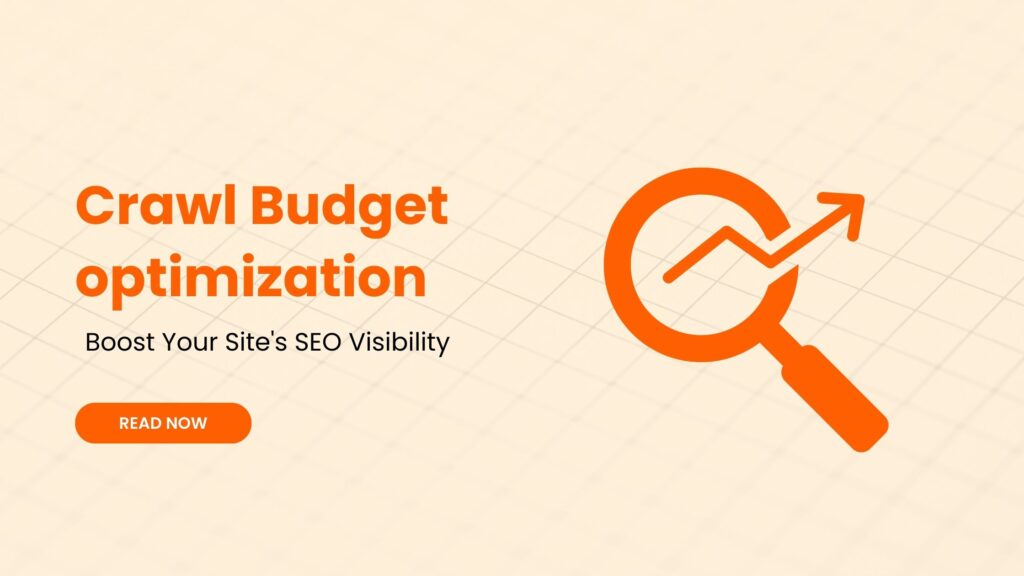Crawl budget plays a crucial role in determining how effectively and frequently search engine bots like Googlebot crawl and index your website. While most small sites aren’t affected, larger or frequently updated websites must manage their crawl budget strategically to ensure essential pages are discovered and ranked promptly.
What Is Crawl Budget and Why Does It Matter
Crawl budget is the total number of URLs a search engine will crawl on your site within a certain timeframe. It depends on two main components:
- Crawl Capacity (Limit): The maximum speed and number of connections Googlebot can use without overloading your server, affected by server performance, hosting type, and any crawl rate settings in Google Search Console.
- Crawl Demand: Influenced by how often your content updates and how popular it is—fresh, high-traffic, or frequently changed pages get crawled more .
Why it matters:
If the crawl budget is mismanaged, important pages may be crawled infrequently, hindering indexing and SEO performance. This is especially critical for sites with thousands of pages or frequent updates .
Who Needs to Optimise Crawl Budget?
- Large sites (10K+ pages)
- E-commerce and directories with frequent additions/updates
- Sites experiencing “Discovered – currently not indexed” in Search Console.
Top Strategy Playbook for Crawl Budget Boost
| Strategy | Benefit |
| Enhance Page Speed & Server Health | Faster load times lead to increased crawl limits. Slow servers cause Googlebot to crawl less. |
| Avoid Duplicate & Low-Value URLs | Limit crawling of faceted navigation, session IDs, and infinite spaces via robots.txt or canonical tags |
| Maintain Link Parity (Mobile/Desktop) | Ensure mobile version includes all critical links or list them in the sitemap |
| Use Sitemaps & Robots.txt Intentionally | Highlight vital pages; disallow unimportant content from crawling |
| Improve Internal Linking & Page Popularity | Boost crawl demand for high-value content—popular pages get crawled more |
| Monitor Crawl Stats in Search Console | Track crawled pages/day and adjust strategy accordingly |
You May Also Like to Read:
A Step-by-Step Guide to Local SEO for Small Business Owners
In 2026, how visible a small business is in local search results could make or break its growth. People now…
Search Engine Marketing in 2026 – Strategies, Trends and Best
The digital marketplace in 2026 is more automated, competitive and based on data than it has ever been. Businesses don’t…
Local SEO for Hospitals and Clinics – A Complete Guide
Add Your Heading Text Here In 2026, healthcare decisions begin online and are very personal. Patients no longer rely solely on…
Best Website Development Company for eCommerce Growth in 2026
The world of e-commerce is changing faster than ever. As we get closer to 2026, people who shop online want…
Best SEO Services for Law Firms in 2026: Strategy, Benefits
More people than ever are using search engines to look up law firms before they call them. A lot of…
What Is Social Media Marketing and How Does It Work
Social media marketing is the process of creating and sharing content on social media platforms to connect with the right…
Advanced Tactics for Large or Complex Sites
- Leverage prerendering for JS-heavy pages to reduce crawl resource drain.
- Segment content-heavy subdomains to optimise separate crawl budgets
- Use server logs and tools like Ahrefs/Semrush to track bot behaviour and spot crawl inefficiencies.
Crawl Budget & Modern SEO Trends
With AI-driven search and efficiency focus, technical SEO is now essential. Prioritising crawl efficiency ensures your best content is visible, indexable, and competitive, especially for large, dynamic websites.
Final Checklist
- Boost the speed and reliability of your server
- Block or canonicalise low-value or duplicate URLs
- Ensure mobile-dek link parity or use comprehensive sitemaps
- Highlight important content with strong links
- Track crawl performance via Search Console and logs
- Leverage prerendering for JS-heavy pages
In sum, mastering crawl budget means aligning your site infrastructure with SEO goals. It ensures search engines interact with your most important content efficiently, helping you stay ahead in rankings and SERP visibility.

Deep Bhatt is a growth-driven digital marketing strategist with 9+ years of experience helping brands scale through SEO, performance marketing, and powerful digital storytelling. As the founder of Dero Digital, he focuses on building strategies that don’t just get clicks — they generate loyal customers.
His approach blends data, creativity, and real-world business understanding, making digital marketing simple, effective, and ROI-focused for every client. When he’s not running campaigns or optimising websites, Deep is busy exploring new marketing trends and shaping ideas that inspire the next phase of digital growth.







